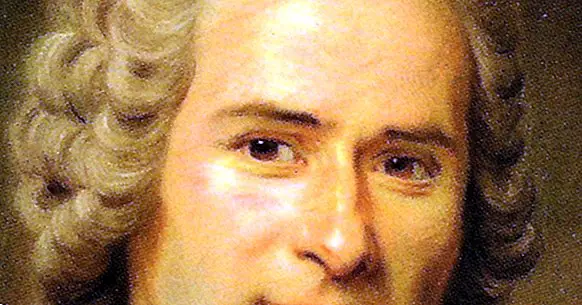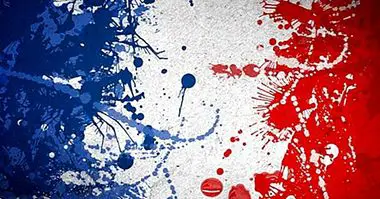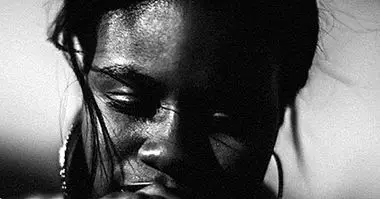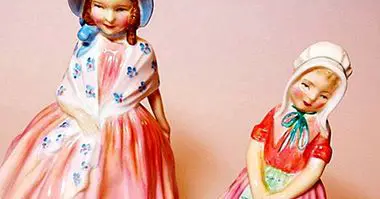The theory of the good savage by Jean-Jacques Rousseau
As regards the history of Europe, the theory of the good savage proposed by Jean-Jacques Rousseau is one of the pieces of political philosophy that have most influenced not only our conception of what politics should be, but also what we believe is "natural" and "artificial" and the implications that this distinction has on our lives .
Next we will review the concept of "good savage" that Rousseau used in his writings. But let's start with the basics.
- Related article: "How are Psychology and Philosophy alike?"
Who was Jean-Jacques Rousseau?
In Europe in the mid-eighteenth century, the scientific and intellectual movement known as the Enlightenment had already begun to undermine the power that religion had maintained when it came to explaining the nature of the human being. The Christian dogmas that appeared in the Bible or in their more or less arbitrary interpretations were no longer justified by themselves; it was necessary to base knowledge on empirical observations .
Jean-Jacques Rousseau was one of the great representatives of the Enlightenment. Born in 1712 in Geneva, he had a busy youth . His mother was born before he was the first year of life, and his father left him soon after, so he was taken care of by his uncle. At sixteen he ran away from home and went to France first and then to Venice. His intention during those years was to create a name as a musician.
In the year 1740, Rousseau met Jean d'Alembert and Denis Diderot, two encyclopedists (responsible for creating the first encyclopedias in history), and as a result of his influence he became interested in philosophy. His ideas were transgressive even in the Enlightenment era, among other things because, as we will see, Rousseau was very critical of the idea of progress made through scientific and technological improvement.
Rousseau's texts had a great impact in the political and social sphere, but the controversies that they provoked were also intense . That is why he was passing from one country to another because of the expulsions he suffered. For a time he was living in England under the shelter of David Hume, but not even this refuge lasted long, since both philosophers were discussed and the Swiss had to return to France using a false name (he was not allowed to be in the country) . After several years the authorities allowed him to stay in Paris, place where he died in 1778.
- You may be interested: "The theory of the social influence of Michel de Montaigne"
The theory of the good savage of Rousseau
These are the main theoretical foundations of the theory of the good savage.
1. Politics is the management of authority and force
Rousseau, like many other philosophers of the politics of his generation, gave much importance to the concept of "social contract". The social contract is the hypothetical agreement between citizens and owners of the power that makes states possible and have a stable structure .
For Rousseau, therefore, both the existence of the State and of politics implies that there are certain people who force the rest to behave in a way, in principle, for the good of the majority.
2. Private property generates violence
The existence of private property means that the State must create mechanisms to protect it. And because this mission is one of the great pillars of society, when creating laws, the perspective of those who have more properties is adopted . That is, the rich. This, of course, implies that the interests of a minority are imposed on those of the majority, which are the ones that have fewer properties per head. Citizens only exist as long as they have private property.
- Maybe you're interested: "John Locke's tabula rasa theory"
3. Systemic violence in society
How is it difficult to know what is done for the good of the majority and what is not, on the one hand, and you can not ask for responsibilities for everything the State does, on the other, Corruption and injustice are frequent . In addition, these injustices are not only from the bosses to civilians: the existence of economic and democratic deficiencies generates a chain effect, so that violence between citizens is also common.
Thus, for civilization and states to exist, there must be a certain degree of injustice and violence, given that there is a decompensation between people who dominate others and others who are dominated, by not taking advantage of mechanisms of oppression that society already offers even before we are born . The laws make it appear dynamic relationships between people who are unfair.
4. Man is born free, but lives chained
From the above, Rousseau concludes that we come to the world with a good predisposition to morally good behavior, but that society corrupts us to force us to participate in their game.
5. The concept of the good savage
It should be noted that for Rousseau the idea of "good savage" does not refer to a type of human being that necessarily had to exist at some remote moment in our history, nor does it perfectly define tribal behavior. It is a hypothetical assumption, something that serves to understand the nature of the State, and not to know how we lived before.



















